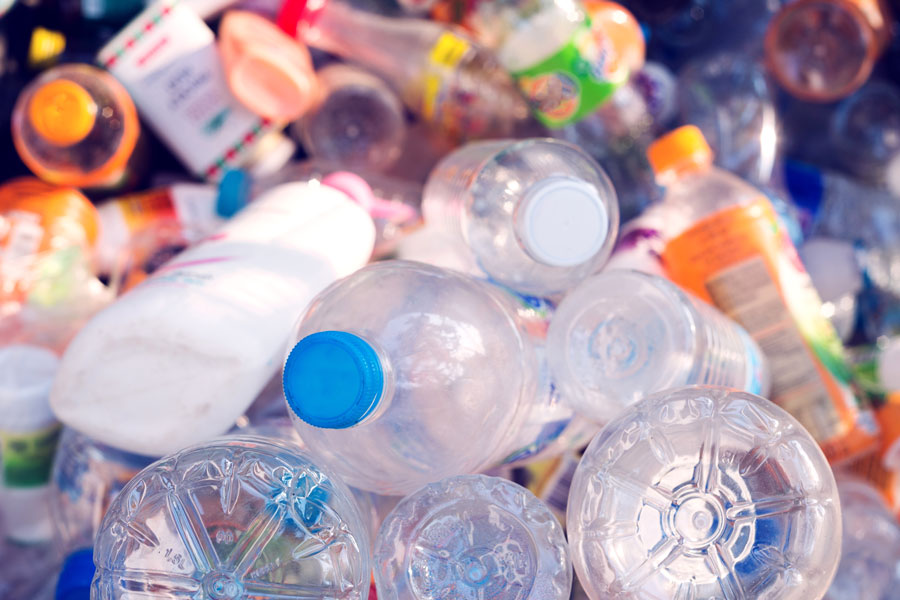Led by The Recycling Partnership and World Wildlife Fund in partnership with the Ellen MacArthur Foundation, the U.S. Plastics Pact will unify approaches to rethink the way we design, use, and reuse plastics
Scottsdale, AZ, (AUGUST 25, 2020) – Today, The Sustainability Consortium (TSC) has joined the U.S. Plastics Pact, a collaborative, solutions-driven initiative rooted in four ambitious goals intended to drive significant systems change by unifying diverse cross-sector approaches, setting a national strategy, and creating scalable solutions to create a path forward toward a circular economy for plastics in the United States by 2025. The first North American Pact of its kind, the U.S. Pact is a collaboration led by The Recycling Partnership, World Wildlife Fund (WWF), and Ellen MacArthur Foundation.
As part of the U.S. Pact, activators like TSC recognize that significant, systemwide change is imperative to realize a circular economy for plastics. As such, the U.S. Pact will convene more than 70 brands, retailers, NGOs, and government agencies across the plastics value chain to bring one voice to U.S. packaging through coordinated initiatives and innovative solutions for rethinking products, packaging, and business models.
Sarah Lewis, TSC Sr Director of Innovation, says, ““We are thrilled to be a founding Activator of the U.S. Plastics Pact and are eager to work collectively to meet the ambitious goals set forth. TSC’s Circular Innovation Hub focuses on projects that help create circular systems that reduce the impacts associated with consumer goods production and consumption. This aligns well with the mission of the US Plastics Pact and we look forward to learning and sharing in ways to sustainable solutions for the US and the world.”
As a founding Activator of the U.S. Plastics Pact, TSC has agreed to collectively deliver against these four ambitious goals:
- Define a list of packaging to be designated as problematic or unnecessary by 2021 and take measures to eliminate them by 2025.
- By 2025, all plastic packaging is 100% reusable, recyclable, or compostable.
- By 2025, undertake ambitious actions to effectively recycle or compost 50% of plastic packaging.
- By 2025, the average recycled content or responsibly sourced bio-based content in plastic packaging will be 30%.
While the U.S. Pact is complementary to, and follows the ambitious precedents set by the existing global network of Plastic Pacts, it will be tailored to meet the unique needs and challenges of the U.S. market. The Pact will reflect national priorities and realities, while still propelling the nation closer to other developed nations in its management of plastic waste.
“Together through the U.S. Plastics Pact, we will ignite system change to accelerate progress toward a circular economy,” says Sarah Dearman, Vice President of Circular Ventures for The Recycling Partnership. “The U.S. Pact will accelerate systemwide change by inspiring and supporting upstream innovation through a coordinated national strategy, creating a unified framework and enabling members to accelerate progress toward our ambitious 2025 sustainability goals. Members’ full participation will be vital to reaching our shared goals.”
Achieving this vision will require new levels of accountability from all facets of the plastics supply chain. The U.S. Pact emphasizes measurable change and as such, TSC is committed to transparent, annual reporting, guided by WWF’s ReSource: Plastic Footprint Tracker, which will be used to document annual progress against our four goals. The first task of the founding members of the U.S. Plastics Pact will be to establish a “roadmap” in Q1 2021 to identify key milestones and national solutions to achieving the U.S. targets and realize a circular economy in which plastic never becomes waste.
TSC is a global organization propelling the consumer goods industry forward to create more sustainability products through science-based assessments and solutions. Their full impact report is available here.
About TSC
The Sustainability Consortium (TSC) is a global organization transforming the consumer goods industry to deliver more sustainable consumer products. We are dedicated to improving the sustainability of consumer products. Our members and partners include manufacturers, retailers, suppliers, service providers, NGOs, civil society organizations, governmental agencies and academics. Each member brings valuable perspectives and expertise. TSC convenes our diverse stakeholders to work collaboratively to build science-based decision tools and solutions that address sustainability issues that are materially important throughout a product’s supply chain and lifecycle. TSC also offers a portfolio of services to help drive effective implementation. The Sustainability Consortium has more than 100 members and there are over 2,000 users of TSC tools worldwide; it convenes more than 200 global organizations annually over an average of 75 networking opportunities. Formed in 2009, TSC is jointly administered by Arizona State University and the University of Arkansas. It also has a European office at Wageningen University and Research, and a Chinese office in Tianjin, China. For more information visit www.sustainabilityconsortium.org.
About The Recycling Partnership
The Recycling Partnership is a national nonprofit organization that leverages corporate partner funding to transform recycling for good in states, cities, and communities nationwide. As the leading organization in the country that engages the full recycling supply chain from the corporations that manufacture products and packaging to local governments charged with recycling to industry end markets, haulers, material recovery facilities, and converters, The Recycling Partnership positively impacts recycling at every step in the process. Since 2014, the nonprofit change agent diverted 230 million pounds of new recyclables from landfills, saved 465 million gallons of water, avoided more than 250,000 metric tons of greenhouse gases, and drove significant reductions in targeted contamination rates. Learn more at www.recyclingpartnership.org.

